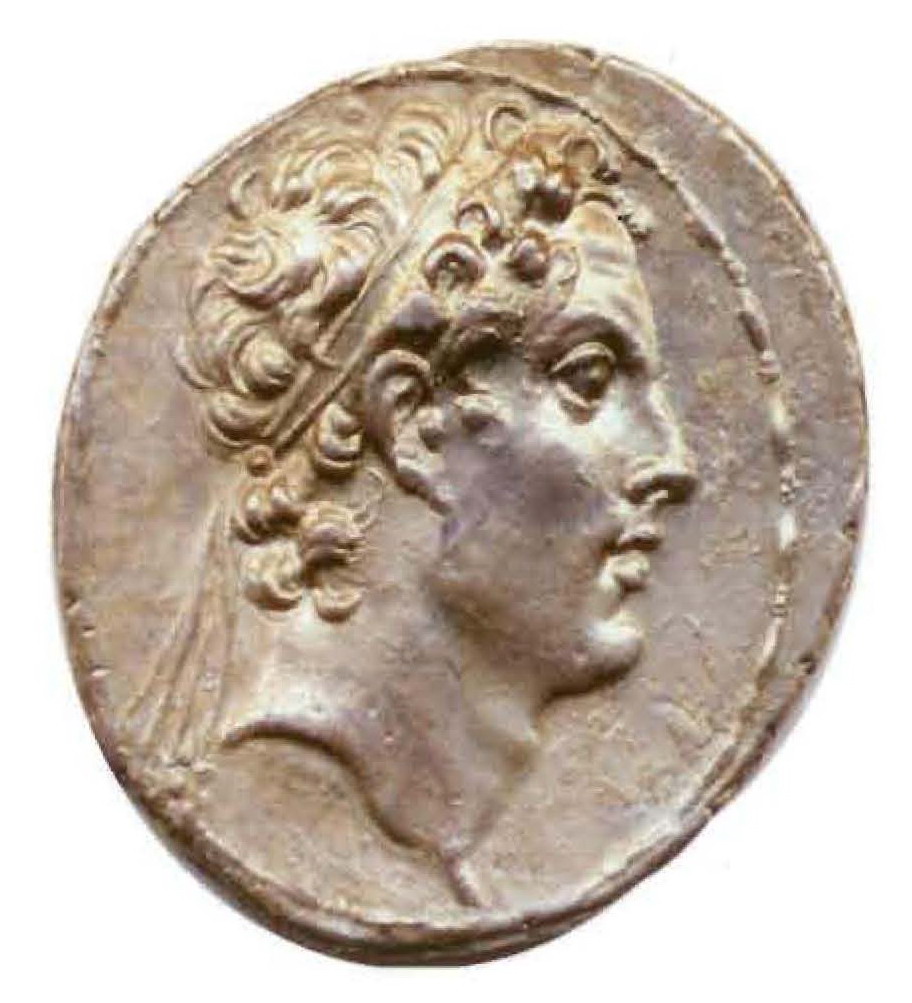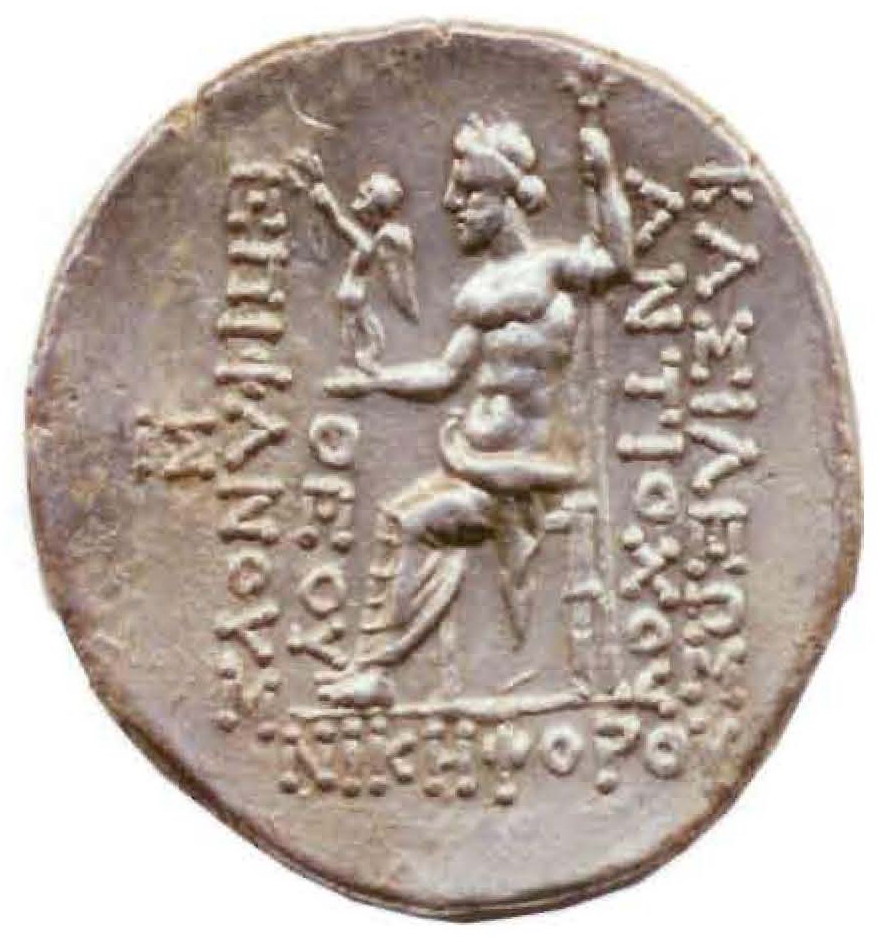Silver tetradrachm of Seleucid emperor Antiochus IV Epiphanes.
When Antiochus IV Epiphanes (175–164 BCE) ascended the Seleucid throne, he sold the office of high priest to the highest bidder. This had traditionally been a hereditary position of great religious importance and the Jewish population was greatly angered by the change. The new high priest, Jason, planned to establish a gymnasium and Hellenistic school in Jerusalem, with the intention of turning the city into a Greek polis.
Antiochus IV abolished the right to live according to the Torah and declared that the Jews were to live under the law of a Greek city. Some factions amongst the Jewish population were in favor of these new laws as they granted the Jews certain privileges, including citizenship in a Greek city, trade with other such cities, the minting of coins, and other advantages particularly attractive to the wealthy and powerful.
At the time, the rituals in the Temple continued according to Jewish law; however, eventually foreign deities were introduced into the Temple, too. Some even viewed the Israelite God as just another manifestation of the Greek god Zeus.
Antiochus became aware of stirrings of rebellion amongst the more pious Jews and in order to prevent a revolution he implemented persecutions which struck at the heart of Jewish culture. Idolatrous worship and cultic prostitution were introduced in the Temple; the Sabbath and festivals were outlawed. Unclean animals were offered for sacrifice on altars outside the Temple, circumcision and observing the Jewish dietary laws were forbidden. Transgressing the king’s new laws was punishable by death.
Antiochus’ attempt to stem the tide of rebellion had the reverse effect. Pious Jews rallied around the Hasmonean family (Judah the Maccabee and his brothers John, Simon, Eleazar, and Jonathan) who led an army against the Seleucids. The Maccabean army defeated the Seleucid generals and recaptured Jerusalem in 164 BCE. On the 25th of Kislev, the Maccabees rededicated the Temple, purifying it of all pagan worship and restoring the traditional rituals, a victory commemorated by the holiday of Hanukkah. Although the persecutions had ended, the war continued throughout the Land of Israel, as the Maccabees attempted to eliminate Hellenistic influences from the rest of the country.
Judah the Maccabee was killed in battle and his brother Jonathan took his place; the post of high priest remained vacant. Meanwhile, a civil war broke out in Syria for control over the Seleucid Empire. Jonathan gave his backing to Alexander Balas in exchange for the position of high priest. On Sukkot (the Festival of Tabernacles) of the year 152 BCE, Jonathan appeared in the Temple wearing the robes of the high priest. Thus began the Hasmonean dynasty which ruled the Jewish people until Palestine was conquered by the Romans in 63 CE.
See also-

